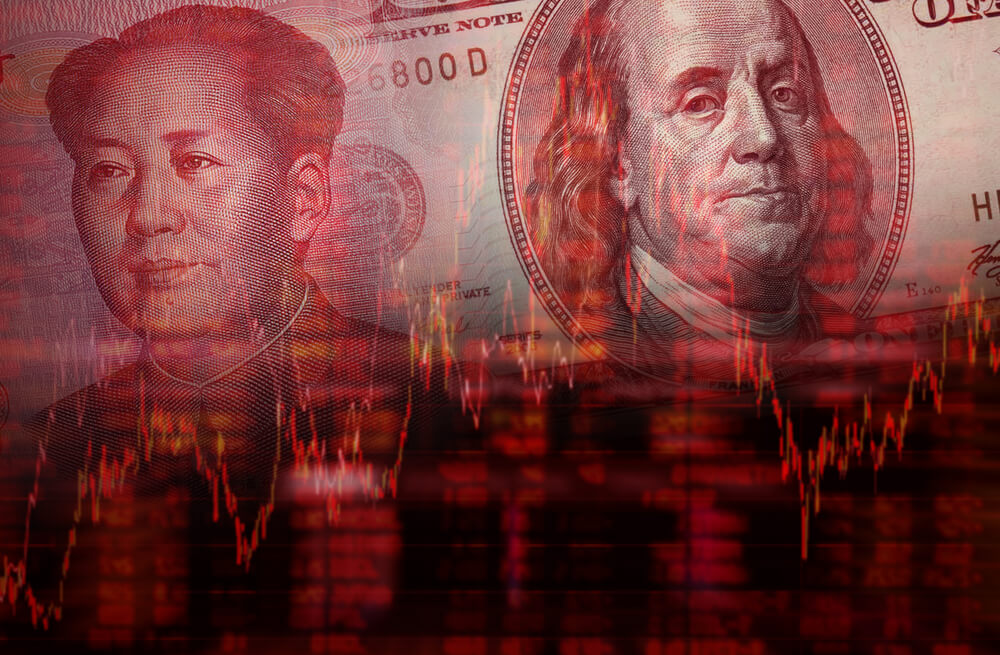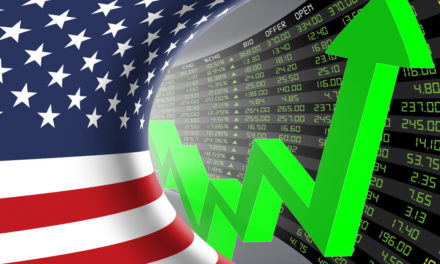Markets closed sharply lower after the latest escalation of the U.S.-China trade dispute and more in Friday’s Stock Market Update.
President Donald Trump said U.S. companies are “hereby ordered” to find an alternative to doing business with China after Beijing announced tariffs on $75 billion of U.S. goods.
The Dow Jones industrials sank 623 points, or 2.4%.
Bond prices soared, sending yields lower. The yield on the 10 year Treasury fell to 1.52%.
Technology companies, which have much to lose in the trade battle, fell the most. Apple dropped 4.6%.
Trump also said he was “ordering” UPS, Federal Express and Amazon to block deliveries from China of the opioid fentanyl. FedEx and UPS sank.
The developments mark the latest escalation of an ongoing trade dispute. The U.S. has said it would impose 10% duties on the $300 billion of Chinese goods that were not already subject to tariffs in two steps, On Sept. 1 and Dec. 15. Early Friday China said it would retaliate with taxes on $75 billion of U.S. products along the same timeframe.
The broad sell-off wiped out all the market’s gains this week, placing the S&P 500 on track for its fourth straight weekly loss. The benchmark index is down 4.1% for the month.
STOCK MARKET UPDATE
The S&P 500 fell 75 points, or 2.6%, to 2,847. The Dow sank 623 points, or 2.4%, to 25,628. The Nasdaq dropped 239 points, or 3%, to 7,751.
The market opened lower with the news of the new tariffs. It recovered a bit after a widely anticipated speech by Jerome Powell where the chairman of the Federal Reserve gave no clear signal on when the central bank may cut interest rates again after a small cut last month.
Speaking at a Fed policy conference in Jackson Hole, Wyoming, Powell noted that there’s growing evidence of a global economic slowdown and suggested that uncertainty over Trump’s trade wars have complicated the central bank’s ability to set interest rate policy. Powell said the Fed “will act as appropriate to sustain the expansion.”
Some economists saw Powell’s speech as setting the stage for further interest rate cuts this year. A quarter-point rate cut reduction in September is considered all but certain. Some think the Fed will cut rates again in December.
Markets have been jumpy for weeks as traders increasingly worry about a protracted trade war and whether it could tip the already fragile global economy into recession.
“There’s been reason to be concerned that this might not get resolved anytime soon, but the market is accepting that not only is it not likely, it’s very unlikely,” said Randy Frederick, vice president of trading and derivatives at Charles Schwab.
On Friday, Trump tweeted that U.S. companies “are hereby ordered to immediately start looking for an alternative to China.” He added that he would be responding to China’s tariffs “this afternoon.”
Technology companies, which have much to lose in the trade battle, bore the brunt of the sell-off. Apple slid 4.6% and Microsoft gave up 3.1%. Chipmaker Nvidia dropped 5.2%.
Companies that rely on consumer spending also took losses. Retailer L Brands plunged 9.3%.
Energy stocks headed lower along with crude oil prices. The price of crude sank 2.6% to $53.87 a barrel as traders worried that the latest escalation in the trade battle could sap global demand for energy.
U.S. bond prices rose sharply as investors sought safety, sending yields lower. The yield on the 10-year Treasury fell to 1.52% from 1.61%, a large move. Banks fell as lower yields can translate to a decline in the interest rate that lenders charge for mortgages and other consumer loans. JPMorgan Chase slid 2.5%, while Citigroup lost 3%.
The price of gold, another safehaven for investors during times of market turbulence and economic weakness, rose to $1,538.40 an ounce.
The Trump administration has imposed a 25% tariff on $250 billion in Chinese imports. The pending 10% tariff on another $300 billion in goods would hit everything from toys to clothing and shoes that China ships to the United States, however some 60% of the new tariffs wouldn’t go into effect until mid-December, and others were taken off the table altogether.
China gave no details of what goods would be affected in its latest round of tariffs, but the timing matches Trump’s planned duty hikes.
China’s government appealed to Trump this week to compromise in order to break a deadlock in negotiations.
© The Associated Press. All rights reserved.




